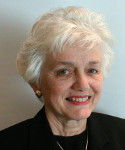Share

Understanding the escalating wave of addiction and mental illness coming at the American family from the COVID-19 onslaught can help strengthen the imperative of “seeing” the children right in front of us. These are the children struggling with parental addiction, which is traumatizing for them; the children whose lives at home have been spinning out of control for as many years as they can remember. These are the children who greet school with gratitude and sighs of relief after every holiday; the children who desperately need student assistance programs (SAPs) now more than ever before. COVID-19 and “stay-at-home” quarantine mandates have been double whammies, crushing hope for the millions of children who still are not back in school or are only periodically there. For these children, home is a place of excessive drinking, drug use, blaming, shaming, fear, anxiety, and chronic emotional stress.
Moving From Awareness to Action
In the 1980s and 1990s, a high school basketball and football coach, Al Dicken, attended a six-month, half-day per week education program at Henry Ford Health System’s Maplegrove Treatment Center in West Bloomfield, Michigan. The program was designed to train community volunteers to become educators on alcohol and drug use disorders as well as their prevention, treatment, and recovery possibilities. The focus was on children of parents with alcohol and substance use disorders (SUDs), its painful impact on their development, and on the family as a whole.
Dicken took what he learned seriously, as did four other colleagues who attended the same training. They established a SAP that provided educational support groups at the West Bloomfield High School as an alternative to suspension, and Dicken began to educate parent groups and faculty across the county. High school drinking parties were the norm in those years and Dicken became sick and tired of the police not ticketing the parents who permitted the large and dangerous parties, or the teens attending. The police told him they stopped ticketing the drinking youth because they were always only given a lecture and released, often with attorneys by their sides, at the Monday-morning hearings.
The police were spending Monday mornings at the court only to watch the youth walk out without serious consequences each week. With that report, Dicken made an appointment with the district court judges and asked them to visit the alternative to suspension educational support group and hear what the students had to say through the presentations and discussions. The judges heard enough and began to require the young people to have at least one parent present at the hearings and would even reschedule if parents did not appear. The courts promised the police force that if the youth were ticketed, the judges would require participation in the school group’s full ten-week program and parents would be required to meet with the program’s counselors at the end of the program. Documentation of completion in the ten-week program included recommendations for assessment, if deemed necessary, to address any problems with alcohol or other drugs that may have surfaced.
Parents were also ticketed if they had approved a gathering of any size at their home where alcohol or other drugs were present. This is all a result of what happened when this one caring coach and his four colleagues decided they should not ignore the reality and said “We can change this.” They started with the superintendent, convincing him it was important to intervene early, then they set up a SAP, added groups for students concerned about their own parents’ alcohol or drug use, recruited colleagues to facilitate the education support groups, and informed the district’s parents. The SAP grew to help more students succeed and the following changes were seen:
- Many students who attended the support groups gained skills to manage problems
- Students who were already struggling with substance use disorders got help to recover and thrive
- Other districts in the county noticed this initiative and began the establishment of similar programs
- The district court judges kept their promises
- Many students learned important lessons and parents eschewed their tacit support of the parties
- Some students in the program were identified as already in trouble with alcohol and drugs and referred to professional assessment
The SAP included intervention for the children struggling with parental addiction. Their groups were called “Concerned Persons” groups. Widespread education programs for teachers and other school personnel followed and student assistance blossomed across much of Southeastern Michigan, creating healing and fostering the development of resilience in countless children. The added bonuses for the schools were better attendance, less tardiness, better classroom behavior, increased academic achievement, higher teacher satisfaction, and students trusting that, should they or their friends be troubled or in trouble, there was real help just down the hall.
Dicken went on to become a leading trainer for SAPs across Michigan—a classic example of a caring adult who understands addiction and its devastating impact on individuals and families and the importance of preventive interventions as early as possible.
Adger is also Sick and Tired
Hoover Adger Jr., MD, MPH, is a professor of pediatrics at the Johns Hopkins University School of Medicine in Baltimore, Maryland, and has a strong clinical interest in adolescent medicine. Dr. Adger is also sick and tired, yet he is a model of dedication and compassion for children as well as a leader in medical education with a measure of creative energy to inspire others to join the fight for the kids. Here is what Dr. Adger had to say:
There is a myriad of ongoing issues that remind me of the many things I am sick and tired of. As a primary care provider, each day I am reminded of the great number of children whose health and well-being is threatened or adversely affected by parental alcohol or other drug use. I am reminded of the extent to which violence affects our day-to-day activities and I am sick and tired of what I see on the news, which is not a true reflection of what really happens in our world. I am sick and tired of the lack of sensitivity to all of the injustices that have become part and parcel of how individuals in our communities behave toward one another. I could go on, but I am primarily sick and tired of the lack of attention paid to children growing up in families affected by addiction.
Baltimore is a city with a population of 622,000 and it has been called America’s heroin capital. This has been a major health problem since the 1950s and has unfortunately become a part of this city’s lifestyle, with increased attention now being brought to the problem due to the rising number of overdose deaths. The problem is compounded by the significant racial and economic health disparities that exist within affected communities. Comparison between areas with the highest and lowest life expectancy shows a twenty-year difference. Nearly 28 percent of families with children under eighteen years old live in poverty. (BCHD, 2017).
What I am really sick and tired of, however, is the lack of resources needed to turn this picture around, and the direction and will to provide the community with the investment it needs to guarantee that its residents and children have a fighting chance at beating the odds and reaching their full potential.
There are many potential Dickens and Adgers out there in Counselor’s audience who are sick and tired of hearing the stories, witnessing the cruelty, and watching the results. You do not need to wait for others to step up! All it takes is enough knowledge and understanding (widespread among Counselor readers), coupled with an attitude of collaboration and a goal of deflection from trouble to help, sprinkled with compassion and the realization you could be one of them. We all live and work in and around systems and interact professionally and socially with people who are making decisions in schools, courts, faith communities, and health care settings. What if we started telling the stories we hear about people like Dicken and Dr. Adger and started a conversation with “What if we . . .”?
America’s Mental, Emotional, and Social Health
Late last year, veteran TV host, interviewer, and longtime NACoA friend Dennis Wholey started conversations with an observation: “Nobody seems to be talking about what we should be talking about: our mental health.” He was concerned and began to talk to people who could help change the conversation. The result is that he is now in the middle of a year-long, weekly, PBS interview series, with retired Congressman Patrick Kennedy as the first featured guest focusing on “America’s Mental, Emotional, and Social Health.”
I encourage you to follow the series and, as you watch and listen, think what you could do to bring mental, emotional, and social health to our children, who suffer doubly today from parental addiction and the additional trauma of COVID-19. Recent episodes of this program can be found on YouTube at “This is America TV.”
References
- Baltimore City Health Department (BCHD). (2017). Twenty-year gap in life expectancy between richer, poorer areas of Balitmore (CBS). Retrieved from https://health.baltimorecity.gov/news/news-coverage/2017-07-07-20-year-gap-life-expectancy-between-richer-poorer-areas-baltimore-cbs
About Me
Sis Wenger is the president and CEO of NACoA.













 Counselor Magazine is the official publication of the California Association of Addiction Programs and Professionals (CCAPP). Counselor offers online continuing education, article archives, subscription deals, and article submission guidelines. It has been serving the addiction field for more than thirty years.
Counselor Magazine is the official publication of the California Association of Addiction Programs and Professionals (CCAPP). Counselor offers online continuing education, article archives, subscription deals, and article submission guidelines. It has been serving the addiction field for more than thirty years.